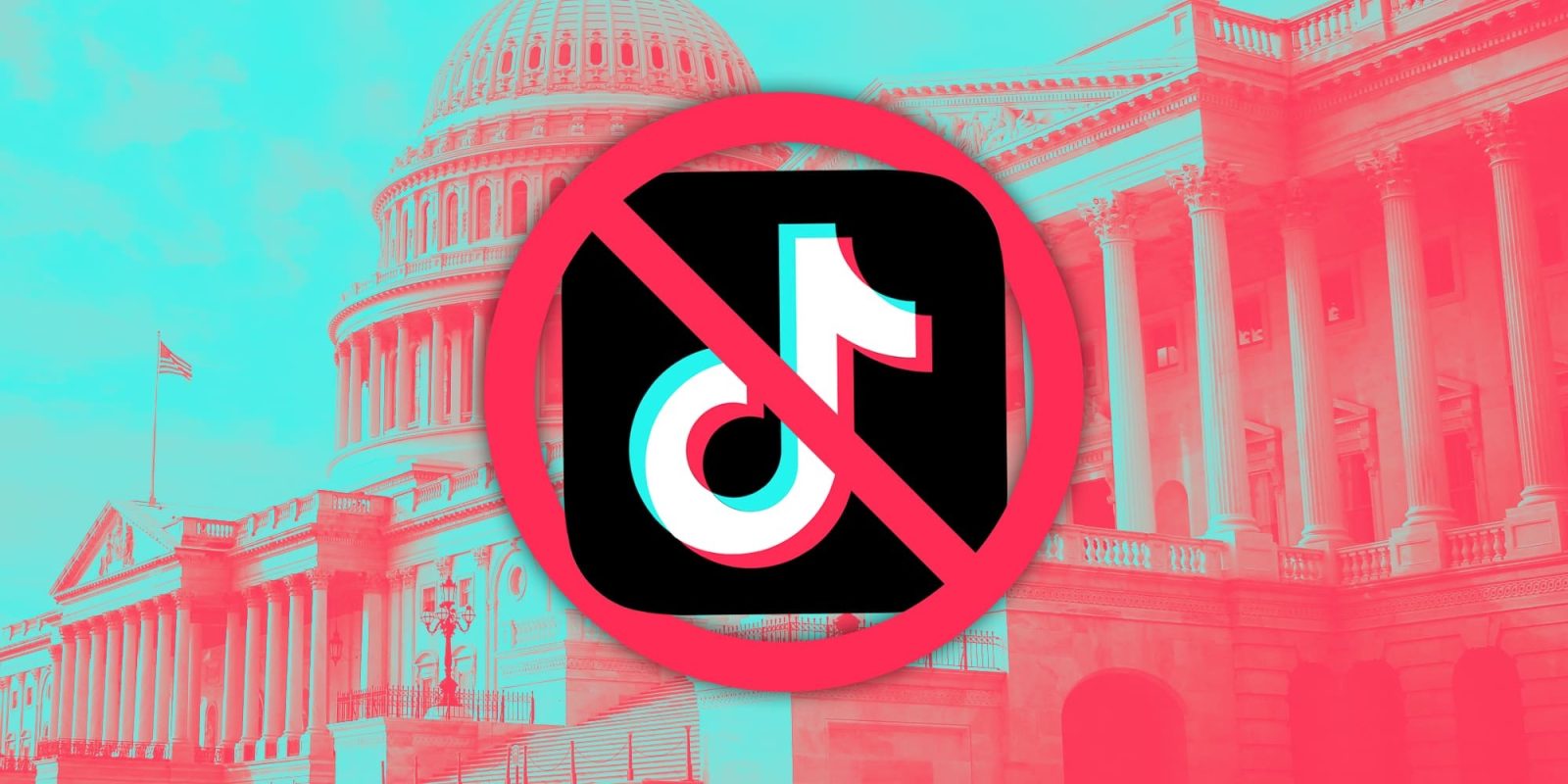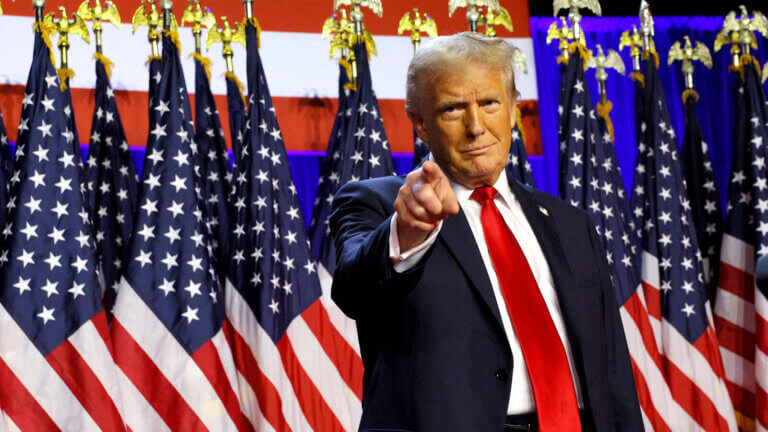A law that could ban TikTok in the US doesn’t violate the Constitution, a panel of judges unanimously — and forcefully — ruled on Friday. The decision suggests TikTok, which has evaded attempts at a ban or sale for over 4 years, truly could be forced out of the US, unless its Chinese parent company, ByteDance, sells it off by January 19th. TikTok has indicated it will take its fight to the ultimate Court, and President-elect Donald Trump has previously promised to save the app, though he’s been fuzzy on how. But as the deadline approaches, it faces an uphill legal battle.
Gautam Hans, a Cornell Law School prof. and associate manager of the school’s First Amendment Clinic, thinks it’s improbable the ultimate Court will upend the DC Circuit’s opinion. “Why would the ultimate Court take this case if they are already beautiful deferential to national safety in general? There’s no mixed dissent, this was a bipartisan, congressional action,” he says.
Plus, Hans says, the majority opinion is written to “insulate itself from reversal” by assuming a lot in TikTok’s favour and inactive deciding against it. For example, the court says that its opinion is entirely based on the public evidence — not the classified evidence that convinced many lawmakers to pass the bill and which TikTok objected to.
Despite the broad government consensus, any online speech advocates say the ruling sets a risky precedent, peculiarly if it leads to a TikTok ban alternatively of a sale. “The government cannot shut down an full communications platform unless it poses highly serious and imminent harm,” said American civilian Liberties Union spokesperson Patrick Toomey. “And there’s no evidence of that here.”
Here’s why the court thinks it’s legal to (potentially) kick 1 of the internet’s biggest social networks out of the US.
Speech versus security
TikTok made respective claims against the government, saying it unlawfully singled out the company and violated its First and 5th Amendment rights. The court dismissed these concerns, but it spent the most time on the First Amendment challenge — concluding that any harm to TikTok and its users was outweighed by national safety concerns.
TikTok argues that, for a social platform like its app, a ban would amount to suppressing speech for it and its US-based users. But the government argues that a Chinese parent company puts those users at risk. It makes 2 basic claims: that the Chinese government could access Americans’ data; and that it could make TikTok covertly manipulate its advice algorithm, shaping what Americans see.
The court agreed with TikTok that this is simply a First Amendment issue — rejecting government claims that, among another things, TikTok’s abroad ownership should strip it of speech protections. The majority besides agreed to consider strict scrutiny, which sets the highest bar for deciding whether the government has a pressing request and a well-tailored solution if it’s going to possibly limit speech.
These were about the only First Amendment wins TikTok chalked up. For 1 thing, the court didn’t find strict scrutiny was necessarily required. A majority opinion, written by justice Douglas Ginsburg, says that’s a hard question — but the court didn’t request to answer it due to the fact that TikTok’s claims would neglect no substance what. (Chief justice Sri Srinivasan wrote his own concurring opinion that conclusively set a lower bar of intermediate scrutiny.)
“The Act was the culmination of extensive, bipartisan action by the legislature and by successive presidents.”
For another, the court proved reluctant to overrule legislature and another officials who raised concerns about TikTok. “The Act was the culmination of extensive, bipartisan action by the legislature and by successive presidents,” the majority writes. “It was carefully crafted to deal only with control by a abroad adversary, and it was part of a broader effort to counter a well substantiated national safety threat posed by the PRC.” Under those circumstances, the law could “withstand the most searching review.”
Electronic Frontier Foundation civilian liberties manager David Greene, who wrote an amicus brief in support of TikTok, said applying strict scrutiny was the right call. But he criticized the overall analysis as “relying heavy on speculation about possible future harms.” (For now, there’s small public evidence that the Chinese government engaged in data access or platform manipulation at any crucial scale; given its close ties to Chinese companies, however, it’s extraordinarily hard to regulation that anticipation out.)
TikTok besides argued that lawmakers had ulterior motives for the ban, noting that any discussed content they found objectionable on TikTok like what they perceived as a high level of pro-Palestinian content. But the judges did not find that to be a disqualifying factor.
Nor did it accept that the divest-or-ban regulation amounted to censoring TikTok’s speech or that of its users. “Content on the platform could in rule stay unchanged after divestiture, and people in the United States would stay free to read and share as much [People’s Republic of China] propaganda (or any another content) as they desire on TikTok or any another platform of their choosing,” reads the ruling. “What the Act targets is the PRC’s ability to manipulate that content covertly.”
In fact, the ruling argued that a TikTok divest-or-ban regulation outright promotes the values of the First Amendment. “Indeed, the First Amendment precludes a home government from exercising comparable control over a social media company in the United States,” the court writes. “Here the Congress, as the Executive proposed, acted to end the [People’s Republic of China’s] ability to control TikTok. Understood in that way, the Act actually vindicates the values that undergird the First Amendment.”
“Fortress America”
Katie Fallow, deputy litigation manager at Columbia University’s Knight First Amendment Institute, says that “sounds good in explanation but is problematic in practice. Most likely the rule would be utilized to censor US people with unpopular views that might align with those of abroad states.”
The court’s framing is “Orwellian,” according to Techdirt founder Mike Masnick. “It claims that banning TikTok, and the speech of millions of Americans on the platform, someway enhances free speech. This is simply a complete inversion of First Amendment values. The First Amendment protects against government censorship and control of private speech, it doesn’t justify specified censorship in the name of preventing abroad influence. The court is fundamentally arguing that violating the First Amendment is essential to save it, which is absurd.”
University of Chicago Law School prof. Genevieve Lakier worries the ruling will “turn the First Amendment into Fortress America.” abroad government manipulation is “worrying,” she writes on Bluesky, but so is home government intervention in speech. “The goal of free speech law should be to navigate a pathway [between] these 2 large dangers.”
Yanni Chen, policy counsel at the nonprofit Free Press, said in a message that the group is “disappointed to see this court undermine Americans’ First Amendment right to information and access in favour of the government’s overbroad interests in national security.” Chen says the law is “on par with practices by repressive regimes that the United States has historically criticized for their disregard of democratic principles.” So far, however, the court strenuously disagrees.
Singling out TikTok
On top of its First Amendment claims, TikTok has said the law amounts to a bill of attainder, illegally targeting and punishing it specifically. The court definitively dismissed the claim. It found the law satisfies nonpunitive aims and notes that legislature created a framework for possibly applying the divest-or-ban regulation to another apps. TikTok’s complaint about lawmakers having questionable motives, meanwhile, “hardly merits discussion.”
George Washington University Law School prof. Mary Anne Franks, who sits on a content moderation advisory panel for TikTok that doesn’t play a function in this case, says the court’s dismissive approach to this motivational test is concerning. “The bill of attainder provision is truly crucial due to the fact that it keeps legislature from coming after any 1 of us in a truly single-minded, scapegoating kind of way,” she says. “It’s truly meant to call attention to any effort by legislature to single out a certain organization and say, did you do this due to the fact that you just don’t like this party?”
Critics of the bill have besides repeatedly pointed out that abroad adversaries can easy buy American data from poorly regulated data brokers. But here, the court notes that legislature late passed a bill banning data brokers from selling Americans’ delicate information to the same set of abroad adversary countries. While the opinion says the TikTok bill’s endurance doesn’t depend on the data broker law existing, it “supports our conclusion that the Act reflects a good-faith effort on the part of the Government to address its national safety concerns.”
Fifth Amendment arguments
TikTok’s backup constitutional challenge was the 5th Amendment — specifically, its warrant of equal protection under the law and its proscription of seizing private property without compensation. But it besides failed. The judges say TikTok’s equal protection claims amount to a complaint that only it was specifically named in the statute, a decision the court determined was reasonable due to the fact that it furthers a governmental interest. “By naming TikTok in the Act, the legislature ensured TikTok-related risks were addressed promptly.” The opinion besides notes that TikTok had protracted discussions with legislature and another parts of the government, saying that, in any ways, it actually “received more process” than a company that wasn’t singled out.
The court besides agrees with the government that the bill isn’t illegally taking private property from the company, since ByteDance has the chance to make money off of a valuable asset. TikTok views divestiture as impractical, but that’s mainly due to the fact that the Chinese government has forbidden a sale — which the court says isn’t truly their concern. “TikTok would have us turn the Takings Clause into a means by which a abroad adversary nation may render unconstitutional government designed to counter the national safety threats presented by that very nation,” the court concluded.
Siloing data isn’t enough
Before the current law passed, TikTok spent years attempting to silo its data in a way that would satisfy national safety concerns, signing a deal with Oracle as part of a plan called task Texas. But the court repeatedly slapped down the thought that these kinds of mitigation measures might be a solution. “The problem for TikTok is that the Government exercised its considered judgement and concluded that mitigation efforts short of divestiture were insufficient,” it says. Since the government says it can’t be assured it has adequate visibility into the company to truly monitor it and can’t trust in the company’s compliance, “the court can neither responsibility nor second guess the Government on these crucial points.”
The judges say that TikTok’s mitigation plan itself would rise a host of fresh issues. “Entangling the U.S. government in the regular operations of a major communications platform would rise its own set of First Amendment questions. Indeed, it could be characterized as placing U.S. government ‘officials astride the flow of [communications],’” they write. “Divestiture poses no specified difficulty.”
On 1 hand, this view emphasizes just how much the court is relying on legislature and the executive branch’s national safety assessments. The opinion says that, even if the judges agreed with TikTok on all factual dispute, it would be “wholly inappropriate” to accept its proposed alternatives to a sale “after Executive Branch officials ‘conducted dozens of meetings,’ considered ‘scores of drafts of proposed mitigation terms,’ and engaged with TikTok as well as Oracle for more than 2 years” in an effort to address safety concerns.
On the another hand, it puts Trump’s promise to save the app in an even more strained position. Trump has marketed himself as tough on China, and the full underpinning of the TikTok bill and the court’s justification for upholding it rests on the government’s own assessment of its national safety risk. He’s been short on specifics of what he’d do to spare the app, telling NBC News he will “make it so that another companies don’t become an even bigger monopoly.” Saving TikTok could mean instructing the DOJ to not enforce the law, assuming SCOTUS doesn’t strike it down. Or it could mean uncovering a buyer for the app — but that would require China’s government to actually let selling it.















